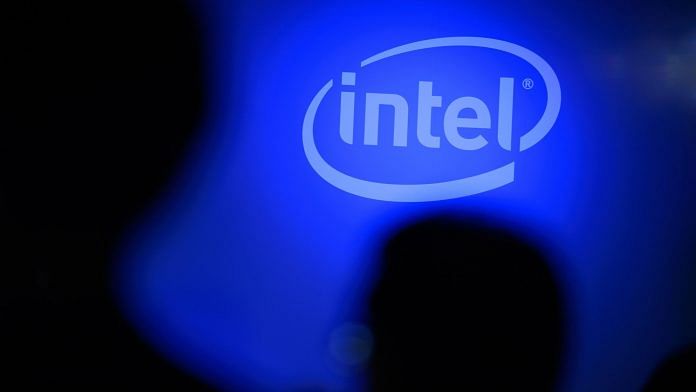
Intel Corp. agreed to sell its Nand memory unit to South Korea’s SK Hynix Inc. for about $9 billion, a deal that allows the U.S. chipmaker to concentrate on its main business while shoring up the Asian company’s position in a booming market.
The chipmaker will pay 10.3 trillion won for the Intel unit, which makes flash memory components for computers and other devices. The acquisition, which will take place in stages through 2025, includes Intel’s solid-state drive, Nand flash and wafer businesses, as well as a production facility in the northeastern Chinese city of Dalian.
The deal should shore up Hynix’s position in a business that’s boomed after Covid-19 drove demand for the chips used in everything from Apple Inc.’s iPhones to data centers. It whittles down another player in an industry the Korean company dominates alongside Samsung Electronics Co. and Micron Technology Inc., potentially buoying Nand flash prices. Hynix’s shares fell about 1.8% after analysts raised concerns about the price tag on its largest acquisition ever.
“Hynix is now entering the hyperscale control chip business by purchasing Intel’s business. Although there is some skepticism about the price of the deal, I think this won’t be a burden because it will ensure solid long-term cash flow,” said Greg Roh, an analyst at HMC Securities. “The market consolidation is good news for Korean memory chipmakers, and will alleviate oversupply issues.”
The acquisition also further streamlines Intel’s struggling empire. Since taking over in 2019, Swan has looked to sell several units that aren’t part of the company’s focus on processors for personal computers and servers.
The Santa Clara, California-based company has delayed production of important upcoming chip lines and now lags behind some industry players in manufacturing technology. Its shares are down about 9% so far this year, while the benchmark Philadelphia Semiconductor Index is up almost 29%.
Despite the delays, the company’s server group has been performing well. Shedding another non-core business could help Intel focus on fixing its chip technology woes.
Intel unloaded its smartphone cellular modem group to Apple in 2019 and this year sold its home connectivity chips group to MaxLinear Inc. In July, the company said it was considering moving away from manufacturing its own chips, potentially benefiting contract producers such as Taiwan Semiconductor Manufacturing Co. and Samsung. –Bloomberg
Subscribe to our channels on YouTube & Telegram
Why news media is in crisis & How you can fix it
India needs free, fair, non-hyphenated and questioning journalism even more as it faces multiple crises.
But the news media is in a crisis of its own. There have been brutal layoffs and pay-cuts. The best of journalism is shrinking, yielding to crude prime-time spectacle.
ThePrint has the finest young reporters, columnists and editors working for it. Sustaining journalism of this quality needs smart and thinking people like you to pay for it. Whether you live in India or overseas, you can do it here.